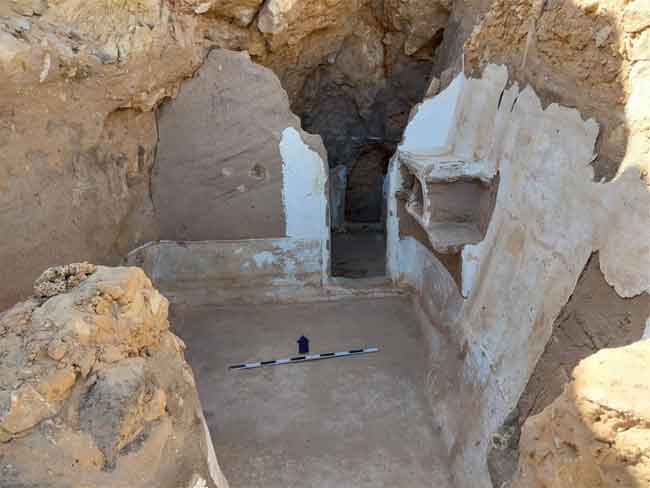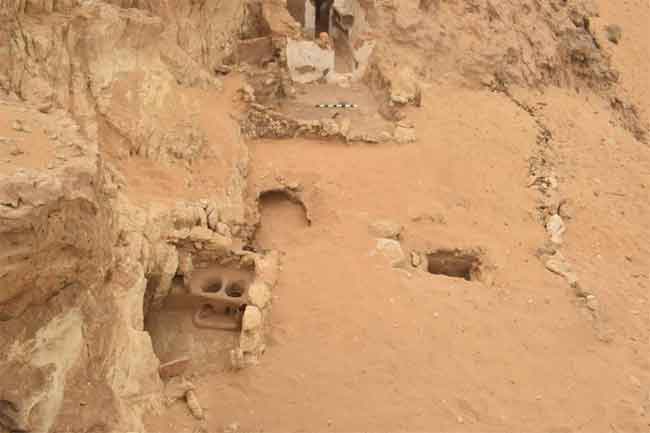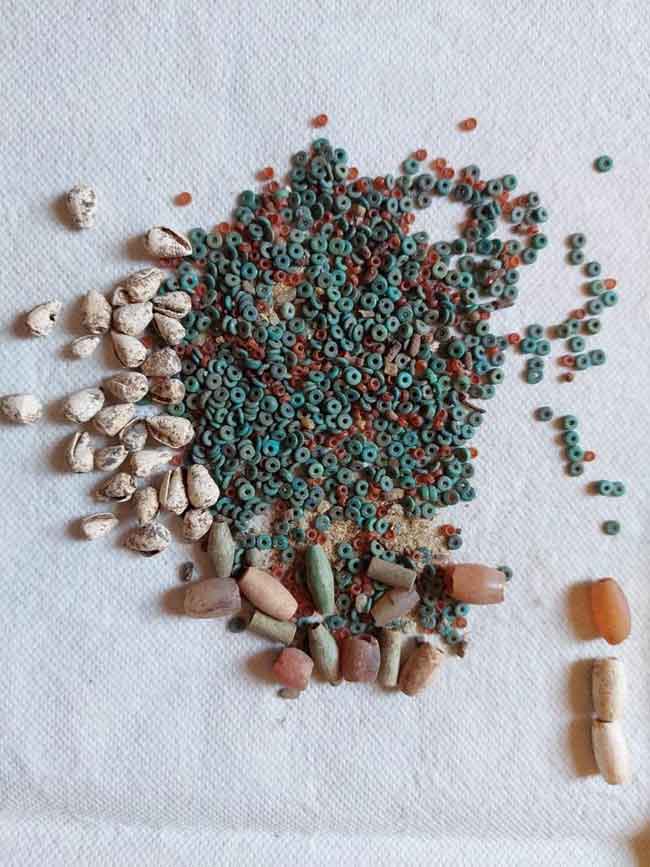Excavations Continue in Middle Egypt’s Meir Necropolis
An Egyptian archaeological mission has uncovered a collection of structure relics from the Byzantine and Late Period in Meir Necropolis in the Assiut governorate.
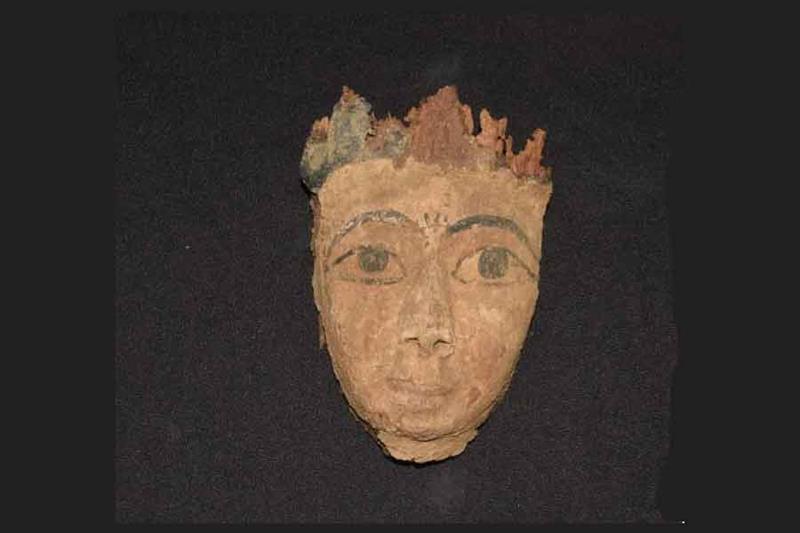
The mission discovered the large remains of structures on two levels, with the upper level consisting of monks’ cells with a court and a number of chambers and the lower level consisting of a collection of burials.
“The discovery highlights the significance of Meir during the Old and Middle Kingdoms as well as the Late Period,” said Mostafa Waziry, secretary-general of the Supreme Council of Antiquities, referring to a Coptic text engraved on one of the walls of the structural remains.
The text, written in black ink, consists of eight lines of prayers to God. Above it, three clay shelves that may have been used to hold the monks’ equipment at the time or manuscripts.
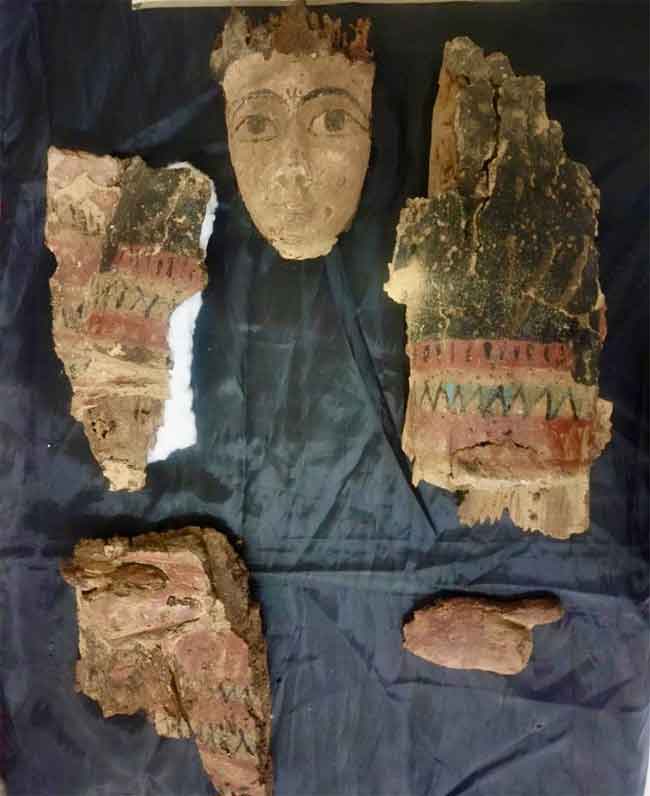
The burials include a collection of coffins and human skeletons in poor condition, among them the funerary objects of an unidentified lady.
These objects consist of remains of a decorated coffin in poor condition, a funerary mask and collar, clay pots of different shapes and sizes, along with a group of blue and black faience beads and two copper mirrors, said Adel Okasha, head of the Central Archaeological Department for Antiquities in Middle Egypt.
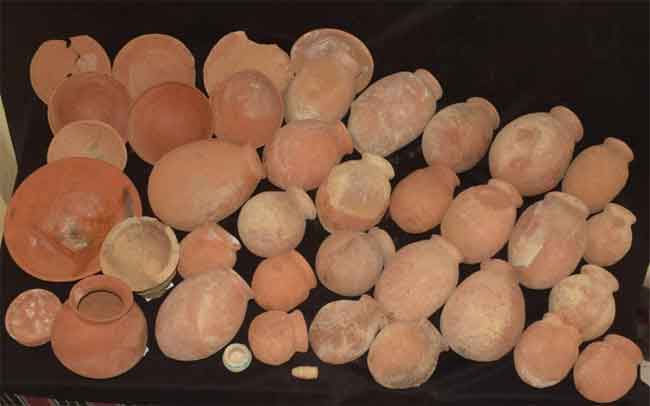
The Meir site is located about 50 kilometres northwest of the Upper Egyptian city of Assiut. Provincial rulers, or nomarchs, were buried in tombs in the hillside.
Several of the tombs have been cleared and opened to visitors.
The necropolis has many important rock-cut tombs dating to the sixth and seventh dynasties, painted with coloured scenes depicting daily life including industries and sports with a distinct local style.
